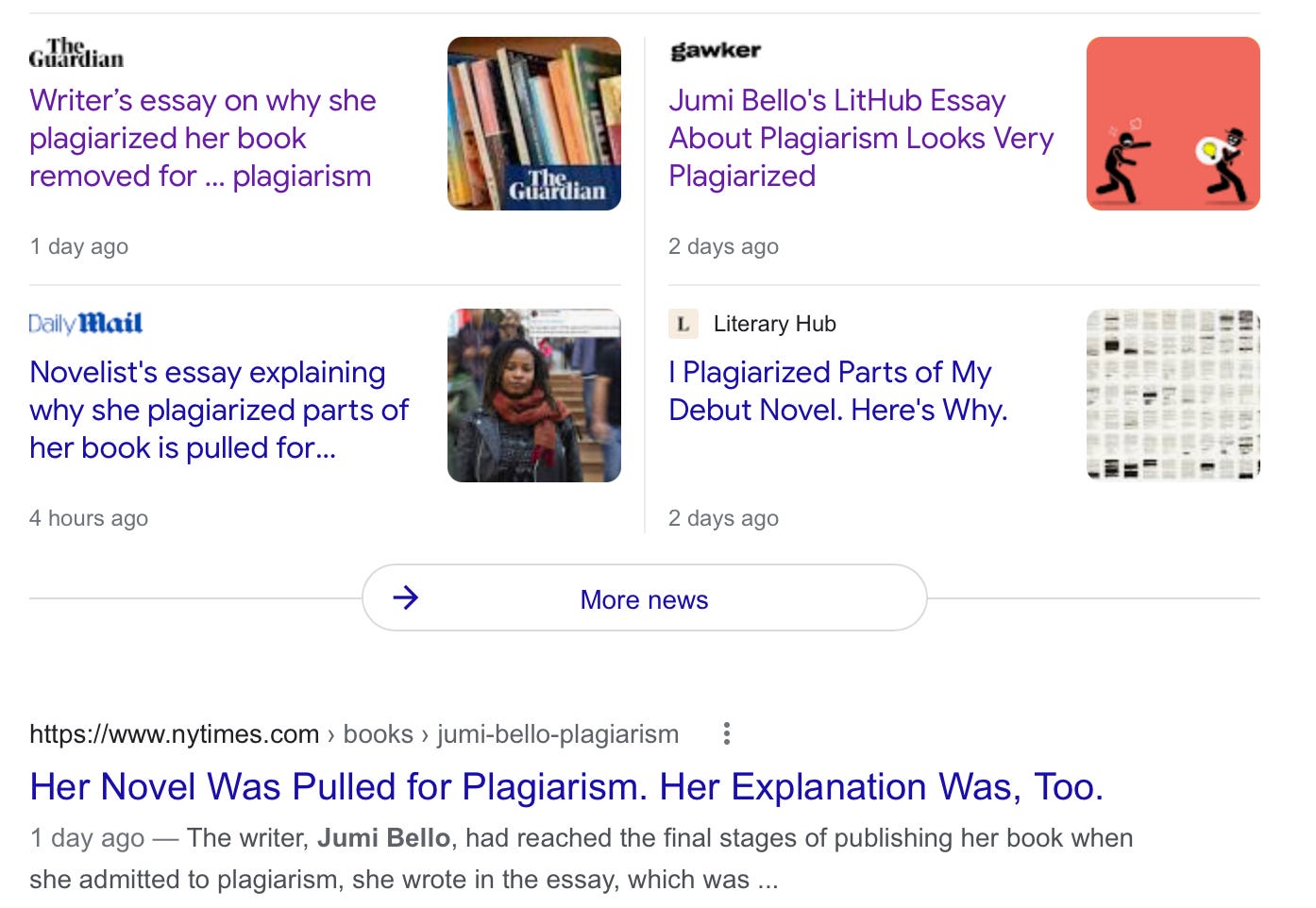Hi friends,
I’m in a bit of a weird headspace because I just watched a man deliberately tip 1 cent on a $10 coffee order. He actually hit the button for custom tip and made the choice to type in $0.01, then hit accept, and accept again for the complete total. He had to hit the zero twice!
My dude, don’t tip! There is a point at which your low tip is actually a deliberate insult to the people working, telling them that you know this is the custom and you understand tipping culture (and therefore the low wages behind tipping), but you don’t think they’re worth it and that you want them to know that you don’t respect them or their jobs or their labor.
If this is you, don’t participate in the service industry! We all understand that sometimes money is tight and sometimes the order was more than you expected and sometimes you can’t afford the extra 15%. We get it. But if you’re deliberately using your tip to insult people? Get out. That’s not a protest against tipped wages, that’s a fuck you to the people working their asses off to make you your coffee.
Anyway, it’s been a while. I’ve got some secret projects that I still can’t talk about but that are taking up all my time. My Wednesday essays might be only once a month until I can find more free time to write them again.
Okay, let’s hop into it.
You might have seen the plagiarism hubbub on Monday.

If you didn’t, here are the broad strokes: After finishing her MFA, writer Jumi Bello sold her debut novel to a major press, then in February it was pulled due to plagiarism. On Monday morning, an essay she wrote for LitHub went live. In it, she explained how the plagiarism happened. She presented the essay as ‘what we can learn from wrongdoers’ and ‘why writers plagiarize.’ A few hours later, the essay was pulled for plagiarism.
Twitter set in, mocking Bello and her choice to plagiarize her mea culpa addressing her plagiarism. Influential authors started defending her, including Roxane Gay, though her tweet seems to have been taken down.
(There were, earlier, also some reports that she had also been caught plagiarizing during her MFA, but I can’t find those again so maybe they were disproven.)
Everyone from Gawker to the New York Times has published some variation on the following headline: Her novel was pulled for plagiarism. Then her explanation was pulled… for plagiarism.
It’s almost funny on it’s face. The irony! The audacity! The editor that fell for it!
But I’ve been furious about it since Monday.
In Bello’s essay for LitHub, which was taken down but can still be read in Google’s delightful cache of content here, she blamed the whole ‘mistake’ on mental illness. She talked about experiencing psychosis, about feeling suicidal, about dissociative episodes, about temporary hospitalizations and intense medications and the ever present fear of failure, of losing her mind, of death.
She explained how the plagiarism happened—it was supposed to be scaffolding, this bit of writing about someone else’s experience being pregnant. It was the fictional pregnancy equivalent of inserting Lorem ipsum placeholder text. And then it didn’t get edited out because of her illness. And then she felt guilty, so she told her editor. And then the book was pulled.
As Bello stated in her plagiarized mea culpa, the word plagiarism has a long etymology, going all the way back to our Proto-Indo-European linguistic roots 4000 years ago. The oldest familiar version to us is probably the Latin plagiare, meaning “to kidnap” or maybe plagiarius, “kidnapper, seducer, plunderer, one who kidnaps the child or slave of another.” (Source.)
Today we define ‘plagiarism’ as “the purloining or wrongful appropriation of another's ideas, writing, artistic designs, etc., and giving them forth as one's own.” (Source.) It’s history as a criminal act has eroded, and kidnapping has disappeared from the meaning. But it’s there, hidden in the gut-punch writers feel seeing their work stolen and credited to the thief. It’s there in the nausea, the sinking stomach, the horror of betrayal.
It’s worth nothing that Gawker reported that it seems to be the very definition of plagiarism Bello used that was plagiarized from earlier articles by a writer named Jonathan Bailey. What else she plagiarized is unclear.
Because that’s what this boils down to, isn’t it? The lingering question—she kidnapped someone’s words and experiences twice, what else has she kidnapped?
Bello stole the experience of a woman’s pregnancy for her novel.
Bello stole a man’s research and expertise for her apology.
Did she steal her mental health problems too?
In the LitHub essay someone—maybe Bello—wrote,
I go online and tell myself that I’m just looking for literary descriptions of pregnancy. I’ve never been pregnant and my narrator is. I need more descriptions of pregnancy in my book for my novel to work. I tell myself I’m just borrowing and changing the language. I tell myself I will rewrite these parts later during the editorial phase. I will make this story mine again. I would have told myself anything at that point. I would go to sleep at 8am because of keyed-up nerves and wake up at midnight. I stay up all night, writing through the days. I just want to get through it, to a place where I can sleep again. Looking back on this moment, I ignored my instincts. I ignored the voice inside that said quietly, this is wrong wrong wrong.
She never experienced pregnancy and was willing to steal that to write her book. Is it difficult mental gymnastics to wonder if she never experienced mental illness but was willing to steal that to write her excuses?
By the end of July of 2020, amidst constant panic attacks and dissociative episodes, I decide it’s time to leave in order to collect myself. I’m supposed to write a rough draft of my second year MFA thesis to hand in to my thesis advisor by September. I hadn’t written a word. A friend offers his family’s mother-in-law cabin where I can have privacy. Space. I spend five hours crying and singing out loud as I drive into the central eastern woods of Minnesota. I spend four days there and two days in nearby Minneapolis, slowly trying to put myself together. I calmly think about killing myself, but then my friend’s family would have to take care of the body and I’m not as inconsiderate as all that. I walk into a grocery store to buy ingredients for cooking, but the choices between the types of cheese I can pick feel like doom. I start sobbing outside on the street. In the evening, with a bottle of wine, my madness growing as the candlelight on my table, I write the first pages of my book…
It’s about more than the obvious fact that I don’t trust anything Bello says. At the end of the day, I don’t know her, she doesn’t know me, it doesn’t really matter to me in any immediate way if she’s a thief, stealing other people’s words for her own gain.
Except—except that what she’s stealing aren’t just words. They’re experiences. Expertise. Lived lives. And she’s blaming this compulsion on mental illness, trying to make us forgive her on this basis while also linking illness with immorality, linking mood disorders with bad behavior.
This link, this bias toward people with mental illness, is something that doctors and patients have been trying to unlink in the public mind for decades. Believing that someone who is mentally ill is intrinsically somehow bad, immoral, dangerous is part of what got people trapped in abusive “hospitals” for life. It’s why mental illness is still so stigmatized. It’s why people who are suffering still hesitate before publicly acknowledging it, before seeking treatment. It’s why some doctors still treat their mentally ill patients with disdain and why families still don’t believe their sick members and why people still call their rivals/exes/competitors “insane” or “bipolar” when those terms don’t apply. This bias has consequences.
Sick people are not bad people.
Living with a mental illness doesn’t make someone hurt others.
But you might now know it, when we have people like Jumi Bello running around, hurting people around them and using mental illness as their shield.
Was it easier, I wonder, to hurt people because she couldn’t see their faces? Did she feel okay about stealing their experiences because at least she wasn’t actually kidnapping the people themselves?
Plagiarism is not a victimless crime. What Jumi Bello did isn’t a victimless crime.
I haven’t seen the other writer Bello stole the pregnancy from named. Maybe that writer doesn’t even know. But we know about Jonathan Bailey. We know there’s an editor at LitHub who probably got in trouble for commissioning this essay, for not checking it for plagiarism before publication, for simply trusting that a writer would meet the most obvious expectation: Write your words, don’t steal them.
In addition to them, we should consider how this will invite scrutiny to other mentally ill writers, an adverbial phrase that encompasses, well, nearly all writers. We should consider how this can undermine trust between editors and writers—when I edit pieces for Calibration Notes, I rarely run it through a plagiarism detector, but watching this unfold has left a seed of doubt in my head—maybe I should be doing that. We should consider how this lends credence to the prejudice that mentally ill people are not to be trusted.
I keep these newsletters free by not worrying too much about typos and flow. But if you want to you can tip me, as a treat.
You can read more of my work on ROADBOOK and, pretty soon, in Fresh Cup! Check out my list of LA’s best coffee shops, a list that was incredibly difficult to narrow down.
My podcast, Unruly Figures, has another episode coming out next week. Check out last week’s episode on Shammurammat, a legendary Assyrian queen. I’m just a few subscribers away from a subscriber milestone, if you are looking to support my work in other ways.
If you liked this and think your friends might too, feel free to forward it on. That’s how we all discover new fun things, right?





I find myself saying this a lot online these days, but I truly think everyone should work a year in either food service or retail. Think of it almost as de-facto civil service. America would be much better off for it.
As for Bello, I will give a sliver of grace here. When writing a draft I’ll sometimes copy something in, with a huge TK (and grawlix) & go back, get the link, & properly cite later while editing.
That’s more a defense against shiny object syndrome than anything else, and obviously needs to be corrected before shipping.
She loses me a little bit when she doubles down and cites mental illness. Had she talked about fear of failure and it’s crushing weight, she’d have had my sympathy. Heck, there are countless people that don’t want to get married but do anyway because the cake’s already been paid for, yaknow?
I wouldn’t have liked it, but I would’ve empathized.
But to then double down on the apology? Nope. That’s a hard pass from me. IMO, it cheats those battling their own demons.